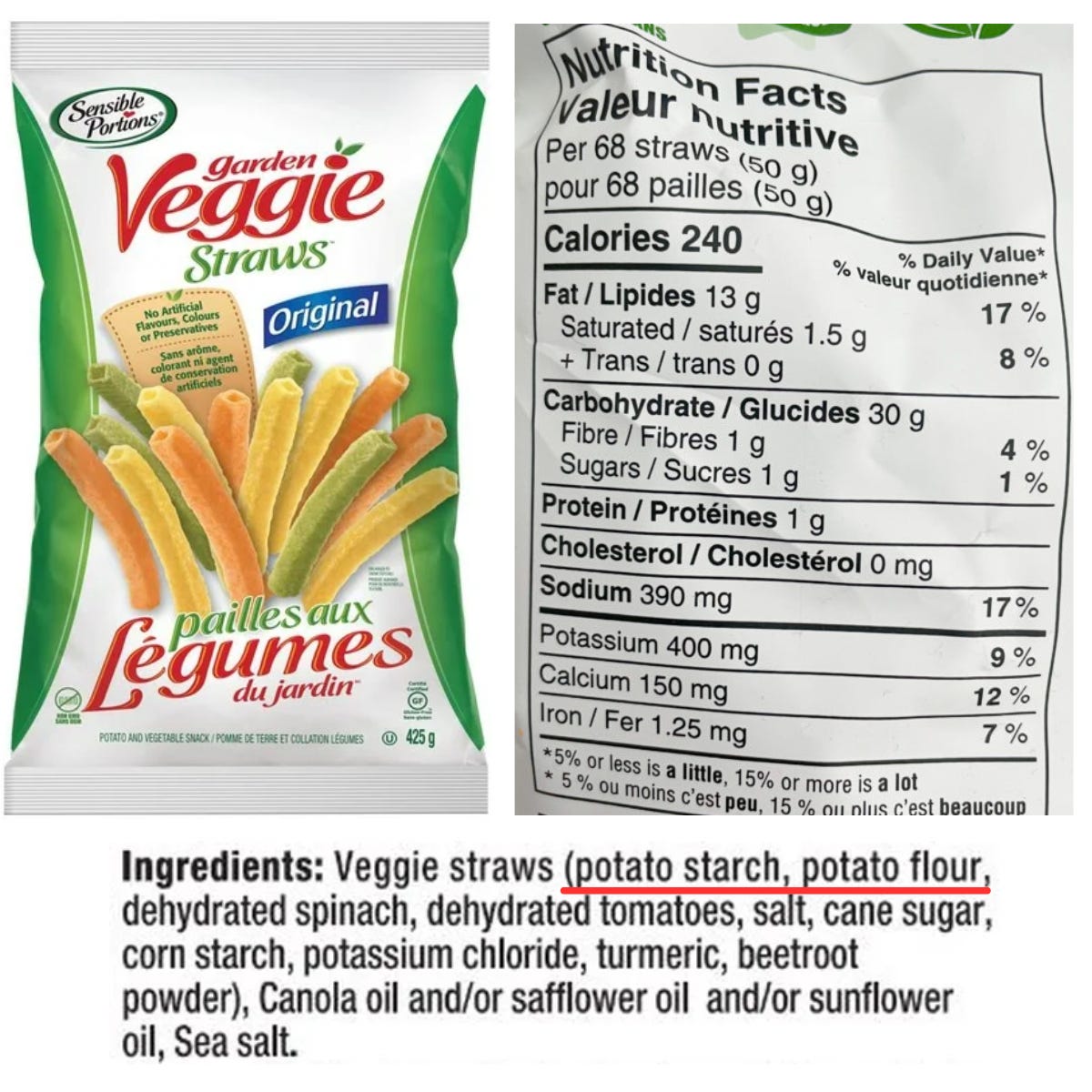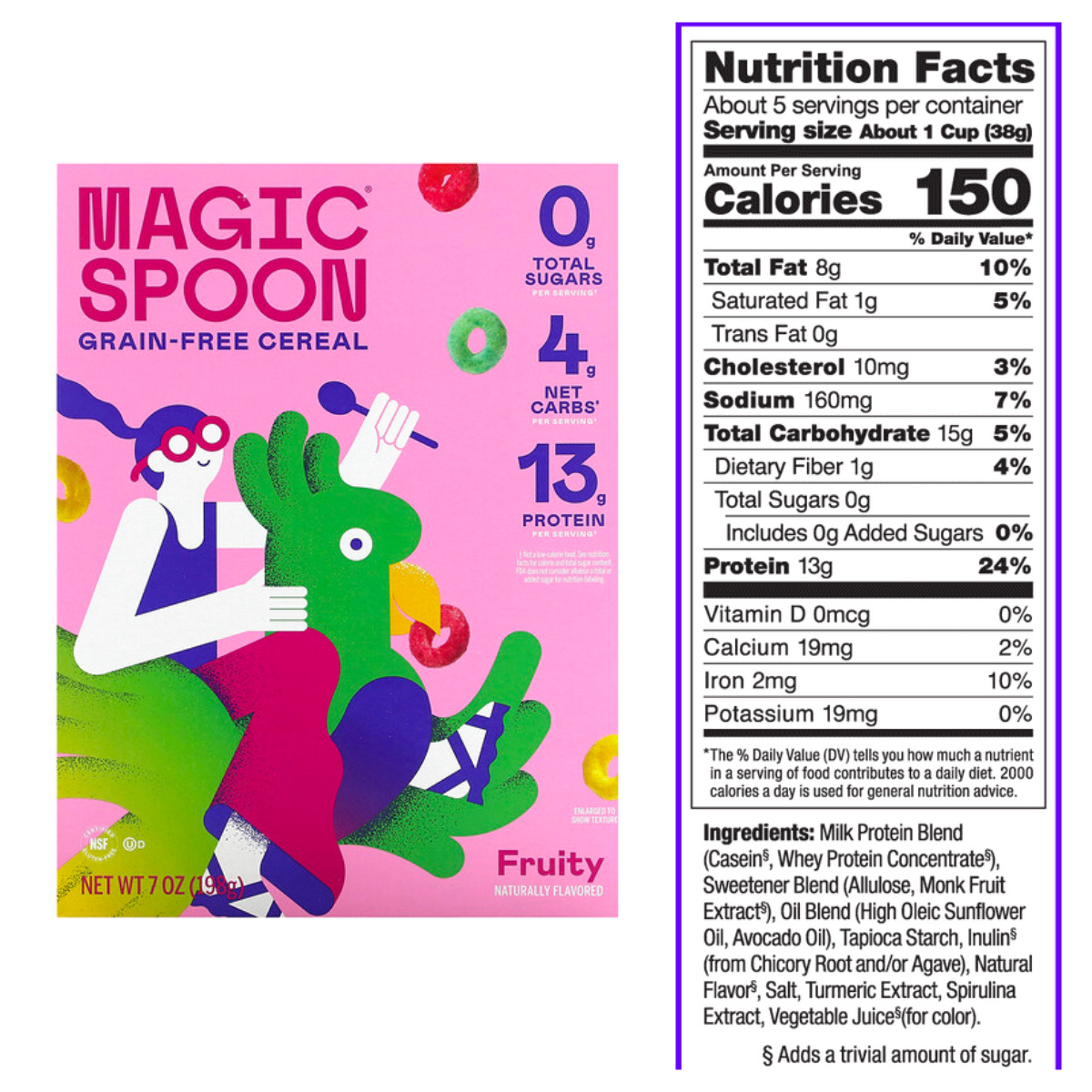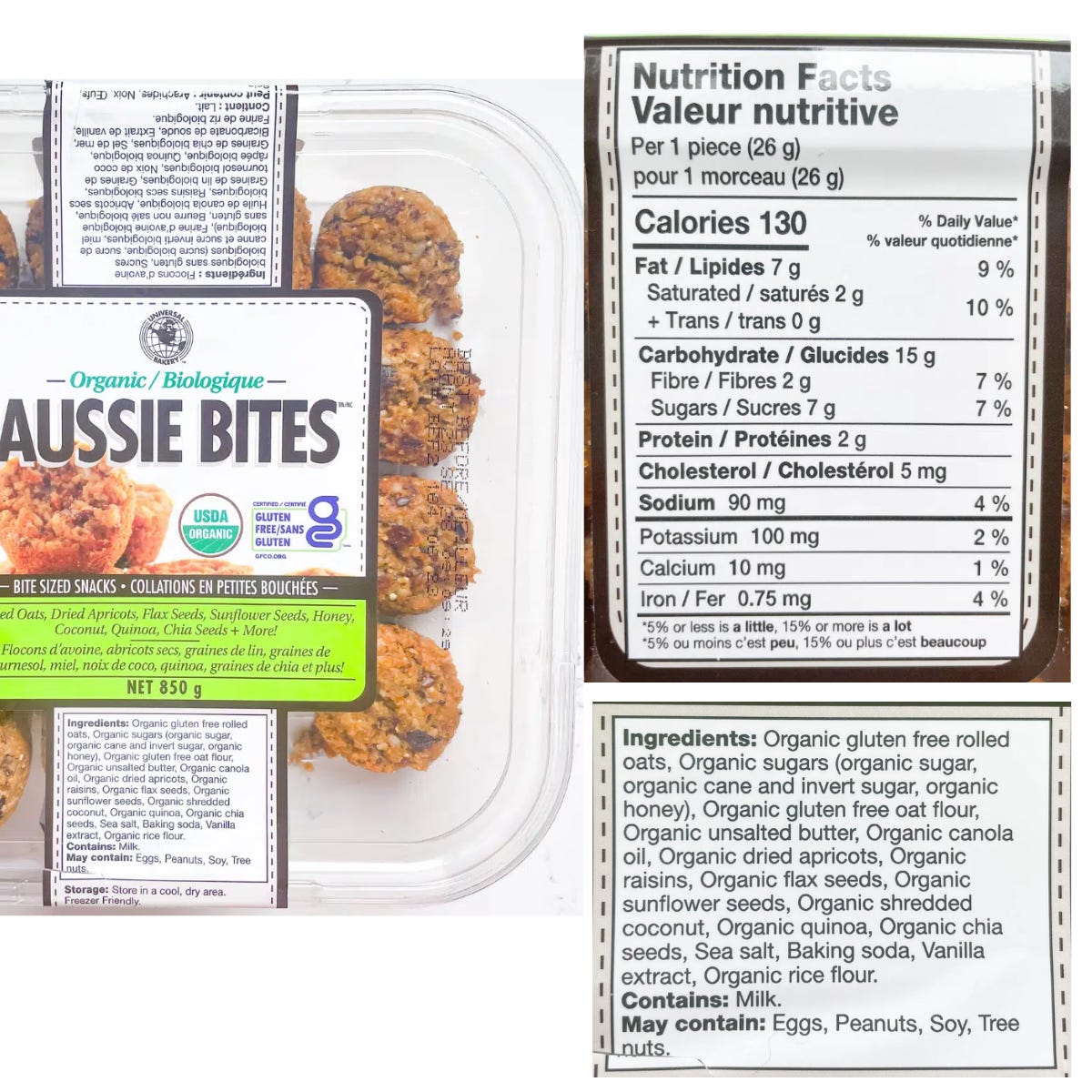Magic Spoon Cereal, Veggie Straws, Aussie Bites: Product Review Roundup
Is Magic Spoon actually healthy? Are Veggie Straws really better than chips? And a review of Costco's Aussie Bites.
Hello, readers! In this week’s edit, I’m sharing product reviews for three popular products: Veggie Straws, Magic Spoon cereal, and Costco’s Aussie Bites. Before we dive into the reviews, here’s some important context to consider…
Most people aren’t eating packaged foods under the belief that they’re superior to whole foods.
We’re learning more and more about the negative health implications of ultra-processed foods (UPFs). So, when completing reviews, I always take into account the level of processing that a product has gone through. Of course, whole foods are usually best. But most people aren’t reaching for UPFs because they believe they’re healthier than fruits and vegetables. They’re choosing them because they need a grab-and-go option, because they’re more accessible, because they enjoy them, because they’re unable to make their own food from scratch, or maybe because they just want something to eat other than fruit and nuts.
When I review a product, I’m looking at how it fits into a healthy dietary pattern if used routinely. I’m not looking at ingredients or nutrients in isolation, but the combination of the two - where nutrients are sourced from in a product (ingredients), and how significant an ingredient is in contributing to the nutritional value of the final product (nutrition facts). I’m also considering each product in the context of the alternatives available in that product category at the grocery store. And let’s not forget marketing claims: if a product claims to be a ‘healthier’ alternative, it’d better have the receipts to back it up.

Nutrition is not black and white, but product reviews kind of need to be.
I’ll refer back to my previous post about a healthy dietary pattern. No single food has the power to impact your health, but the combination of foods you eat over time does. Nutrition is not black and white, and I don’t believe in categorizing products as “good” vs. “bad”. Healthy eating is not about single foods. Truthfully, as a dietitian, I don’t care about the granola bar you eat a few times per week. What I do care about is what you eat the other 95% of the time.
But I also understand that offering neutral or general advice about products isn’t helpful when you’re trying to make a decision in the cereal aisle and get on with your day. For this reason, I try to be as objective as possible with my product reviews. But keep in mind, the relationship between food, nutrition, and health is complex, so there will almost always be an element of - it depends.
If you haven’t already done so, hit the Subscribe button below so you don’t miss any future editions of The Grocery Edit!
You can also access previous editions of The Grocery Edit by downloading the free Substack app below.
Veggie Straws
Sensible Portions Garden Veggie Straws are a crunchy snack made from potatoes, tomatoes, and spinach. They are marketed as a healthier alternative to potato chips. They state on their packaging that they are a “better-for-you” snack that helps you “satisfy your snack cravings in a smart and wholesome way”.
Nutrition Profile
A serving of Veggie Straws contains 13g of fat from canola, safflower, and/or sunflower oil. A serving also contains carbohydrates from potato starch and potato flour, the main ingredients in Veggie Straws. This includes 1g of fibre from potatoes and 1g of sugar from cane sugar. Lastly, a serving of veggie straws provides a good source of potassium, calcium, and iron, from spinach powder.
Overall Review
While I wouldn’t normally review potato chips, the marketing strategy that Veggie Straws uses gives this product an undeserved health halo (the perception that a food is healthier for you). The name “Veggie Straws” alone suggests that these chips are a healthier option than potato chips, and the company reinforces this claim on their website and product packaging. But when we look at the actual ingredients and nutrition facts, Veggie Straws are, in fact, potato chips (or technically, potato straws).
I could argue that Veggie Straws are actually more processed than potato chips because they use potato starch and flour rather than whole potatoes 🤪.
Similar to potato chips, Veggie Straws are a potato product fried in vegetable oil. Despite containing vegetables, they have the same fibre content as a serving of Lay’s Regular potato chips. The only difference is that Veggie Straws contain some spinach and tomato powder, which provide a trace amount of micronutrients that potato chips otherwise don’t have. Bottom line: Veggie Straws are the same as potato chips. Choose whichever option you enjoy most for your occasional salty snack.
Read my full Veggie Straw review here.
Magic Spoon Cereal
Magic Spoon is a high-protein, sugar-free, keto-friendly cereal that claims to be a healthier alternative to traditional sugar-sweetened cereals, such as Froot Loops and Frosted Flakes.
Nutrition Profile
A 1-cup serving of Magic Spoon contains 13g of protein from milk protein (whey and casein), and 8g of [mostly] unsaturated fat from sunflower oil and avocado oil. Magic Spoon Fruit flavour contains 4g of net carbs from tapioca starch and 1g of fibre from inulin. This cereal can reach its low carb and low sugar status as it contains 10g of allulose per serving, a non-sugar sweetener and bulking agent, and monk fruit, another non-sugar sweetener.
Overall Review
The benefit of Magic Spoon cereal is that it serves as a better-for-you alternative to popular sugar-sweetened cereals. But in the context of all cereal, it isn’t necessarily the best option on the market. If you enjoy the nostalgic sweet cereals of your childhood, Magic Spoon offers an alternative that is free from added sugar and rich in protein.
However, Magic Spoon cereal is very low in fibre, with only 1g per serving. When cereal is made with whole grains, it offers an opportunity to get a significant serving of fibre, which we know is part of a healthy dietary pattern. If you enjoy this cereal as an alternative to your usual bowl of Froot Loops, I suggest pairing it with a source of fibre, such as fruit, for a balanced meal. Alternatively, you can add some protein powder to your favourite high-fibre cereal for the same effect. You can check out my list of high-fibre, low-sugar cereals for options.
Check out my full review of Magic Spoon here.
Aussie Bites
Aussie Bites are a popular Costco find made by Universal Bakery. They are baked goods containing whole grains, butter, canola oil, dried fruit, and seeds.
Nutrition Profile
Per bite, Aussie Bites contain 7g of fat, mostly from butter and canola oil. Flax seeds, sunflower seeds, coconut, and chia seeds also contribute to the fat content, but to a lesser extent.
Aussie Bites are a source of carbohydrates, including 2g of fibre per bite, which is impressive based on the small serving size. This is mainly due to oats being the primary ingredient. They also contain 7g of sugar per bite. Of this total sugar, about 4g is from dried fruit, and the remaining 3g comes from added sugar (cane sugar and honey).
Each bite also provides 2g of protein from oats, with flax and sunflower seeds contributing trace amounts.
Overall Review
A positive aspect of Aussie Bites is that their primary ingredient is oats, a nutrient-dense whole grain that contributes a good source of fibre and complex carbohydrates to these bites.
Though these bites contain flax and sunflower seeds, great (minimally processed) sources of healthy fats, the majority of the fat in these bites actually comes from butter and canola oil, similar to other muffins or baked goods.
It’s important to note that the serving size of Aussie Bites is only one bite. Depending on how many bites you consume in a sitting, these can add up quickly to be high in sugar and saturated fat. For example, three bites contain 21g of total sugar, with 9g of added sugar, as well as 6g of saturated fat. For this reason, you may want to consider an alternative for your regular routine.
See the full Aussie Bite review here for more details.
Have a product that you’d like reviewed? Send it to me using the message button below!
Talk soon,
~Brittany
“The Grocery Edit” is written by Brittany Raftis, MScFN, RD. She works as a Registered Dietitian and is passionate about helping people sort through the confusion of ingredients and nutrition facts to reduce stress surrounding daily food choices. She uses an evidence-based approach to clear up misinformation about nutrition and help people select the right products to support their health and enjoyment of food.








